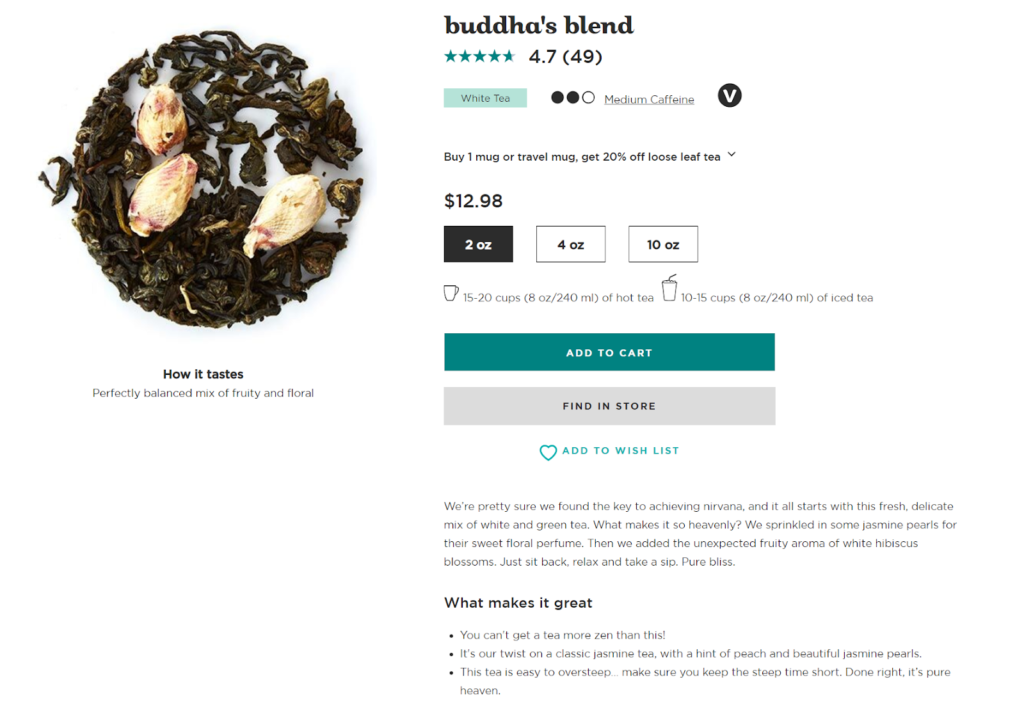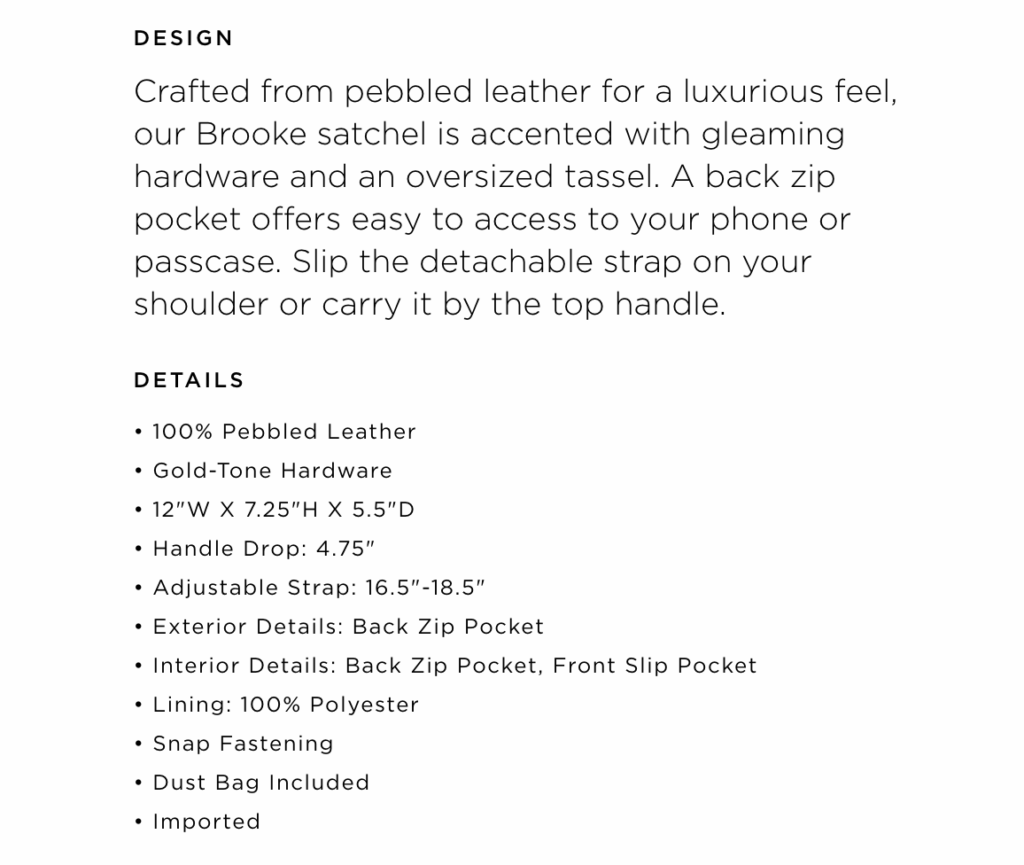Tips and Tricks for Writing E-commerce Product Descriptions That Sell

As many as 81% of shoppers do online research before buying a product. As the customer searches all over the internet to find the right product and finally lands on your product page, you must hit all the right spots so that the customer eventually makes the purchase. The product page is one such important spot to get absolutely right.
This page is significant because this is where the buyer will decide whether to purchase the product or not. If your e-commerce website has a good product page with a great e-commerce product description, it will help you convert oncoming traffic to sales. But if your product description does not match the customer’s expectations, you might have to say goodbye to the potential customer.
When it comes to product description, many content writers make the most common mistake of portraying the items instead of selling the product to the customer.

So, how can a product description help you sell your product? To effectively use product description, follow these tips and tricks that will coax your clients into clicking the ‘Buy’ button.
Tips for Creating E-commerce Product Descriptions That Sell
1. Ask yourself five basic questions
Before writing your e-commerce product description that sells, you need to think and ask six fundamental questions to yourself. The five questions include 4 Ws and 1 H. The answers to these questions should form the basis of writing good product descriptions.
What
What is the product? What are its details and benefits? These questions will give you information on the product, such as your item’s traits, highlights, and dimensions. It will also provide details on how it is different from other competitive brands.
Who
Who is this item for? Which demographics do they belong to? What are their inclinations? The first question helps you determine the target audience and how to attract them to the product. When you know this data, you’ll be more qualified to portray how your item gives them worth and how it can be helpful to them.
Why
Why would somebody buy and utilize your item? How can it improve their lives? What issue does it address? You can use the product’s benefits to increase traffic and convert them to sales.
When
When do your clients utilize your item? Is it a seasonal product? Is it an FMCG product that the customer might use every day? Such questions are essential to give structure to your product description.
How
How does your item work? This isn’t generally important; however, you might need to portray its functions to your clients if it’s a device or a piece of innovation. Furthermore, try not to make it sound complicated.
2. Bridging the gaps between features and benefits
Many content writers forget the true meaning behind e-commerce product descriptions. They focus more on describing the product and listing its features. What they miss is to show how these features can be beneficial to the buyer.
As a content writer, it is vital to ensure that you highlight the benefits of your item. Clarify ‘how’ a specific product element is helping the buyer in their lives and ‘why’ it is an essential buy.
3. Characterize your tone of voice
The tone of voice is significant while speaking with your potential customer. It’s about how you converse with your audience using your product description page. It takes effort to get comfortable with the tonality.
However, it would help if you did that before starting your description. If you disregard this point, the odds are that your work will not give you the desired response from the customers.
So, how should you converse? Your style can be easy-going, clever, or formal. Here, everything relies upon your customers and the product or service you offer. For example, if your target market is young people, a formal style won’t be ideal; instead, add humor and make it funny. Look at the example below that uses a peculiar tone that appeals to its product’s users:

4. Remove buyer’s guilt
Whenever buyers visit a website, they often feel guilty about spending money on different products. We all feel it, which always happens before purchasing an item. As a content writer, your aim should be to eliminate the guilt part of the buying experience. You need to show that the product they buy is worth their money.
You can use several strategies to remove the buyer’s guilt. Some of them are as follows:
- Let them feel that the price is perfect for the product
- Make them feel that there is a one-time offer on the product
- Praise them for discovering this offer and deal so they can be sure to buy the product
- Portray the product as an exclusive item
- Make sure to highlight all the features and benefits to the buyer
- Make it sound like the item will help them save money in the long run
- Stay away from words like treat, costly, and splash
5. Appeal to your audience’s imagination
Multiple studies state that people are more likely to buy a product when they can see, touch, and feel it. As an e-commerce website, you don’t have the privilege to handle the product. This implies that you need to focus on getting the buyers to envision what the product feels like on contact.
Let’s get a better understanding with an example. Let’s consider that you are trying to sell an outdoor inflatable pool. Instead of just describing the product with the function and features, you need to show that it is a sunny day, and all you need is a pool filled with cool water. For such instances, a great product image should complement the product description.
6. Utilize more verbs and fewer adjectives
After playing out an analysis of MBA admission letters, the Director of Harvard Business School found that verbs were more convincing than adjectives. Sometimes adjectives can be dangerous since they can cause your product description to be cumbersome and lengthy, leading to your content sounding uninteresting.
Action words abbreviate your content by making it more compact and precise. It makes the content sound stronger, making your e-commerce product description writing more attractive to your clients. When composing your content, keep in mind to always make sure to use sensory adjectives and action verbs.

7. Make descriptions scannable
According to research, only 16% of individuals take the trouble to read each word on a website. Whereas 79% only check a few things and move on to another website.
Therefore, it is crucial to make your product description for e-commerce website scannable and catch the viewers’ attention in a short time. Here are some of the strategies that you can use to make your description scannable:
- Use subheadings to catch your audience’s eye
- List points of your item’s primary highlights and advantages
- A huge font on your headings and subheadings so that it’s not difficult to miss
- Always add visual content such as videos and images to catch people’s attention
An example of an easily scannable product description:

8. Utilize social proof
It’s obvious that when clients are wavering about buying an item, they’ll frequently search for references from friends, family, or social media sites. That is the reason online social sites like Yelp have become so popular.
If you need to convince your clients quickly and keep them on your site, incorporate product reviews on your site itself. If you have ever purchased something on Amazon, you realize how incredible such product reviews can be while deciding to purchase.

9. Streamline for search engines
Individuals are utilizing search engines such as Google to discover your item. That is why it’s significant that you streamline your e-commerce product description for SEO which can give you a higher ranking on search engines.
In any case, ensure that when you compose your description, you’re writing it for your customers and not explicitly for SEO. Here are some tips on how to optimize your product description for SEO:
- Try not to incorporate industry language and jargon. Please keep it simple and easy to understand
- Ensure you have the keywords in your headings, subheadings, descriptions, images, and so on. Try to include them naturally
Creating the Perfect E-commerce Product Description
It doesn’t matter how beneficial your product is if you cannot convey it using a product description. Making a great description can take some time and may cost you, yet it plays a vital role in the buyer’s decision process.
Use the product description writing services provided by Peppertype.ai to develop relevant and creative product descriptions for your brand.
When writing a product description, think like the buyer and not as a seller. This one thought will help change your perspective and help you create fantastic product descriptions.

FAQs
Use persuasive language.
Master the art of storytelling
Keep your copy concise & effective
Search engine optimization
Avoid copy-pasting existing product descriptions
Answer crucial questions
Keep your audience in mind while writing
Concentrate on benefits
Master the art of storytelling
Make it readable with bullet points and breaking down content
Optimize with keywords
Use relevant graphics and visuals
In e-commerce, specifically, tell customers directly about your product. Great product description copywriting represents a product’s features, benefits, and how it solves a particular problem. It is concise, readable, and direct.
Define how the features benefit the user.
Show a pain point and how your product alleviates it
Directly showcase the benefits and give a CTA
Is your product the exact copy of someone else’s? No, right! It always pays to be original and creative. Plus, you can use peppertype.ai to create 100% unique and effective product descriptions within seconds.
Latest Blogs
Learn how to rank on AI search engines like ChatGPT, Perplexity, and Gemini by optimizing your content for authority, structure, and relevance. Stay ahead in AI-driven search with this strategic guide.
Explore the best healthcare SEO services for your medical practice. Improve online visibility and effectively reach more patients in need of your services.
Discover top social media agencies specializing in banking solutions, enhancing financial services and driving engagement.
Get your hands on the latest news!
Similar Posts

Peppertype.ai
4 mins read
Taking Writing to the Next Level with Peppertype.ai and GPT-3’s Text-Davinci-003

Peppertype.ai
7 mins read
How Content Generators Work And How To Use Them Effectively

Peppertype.ai
6 mins read